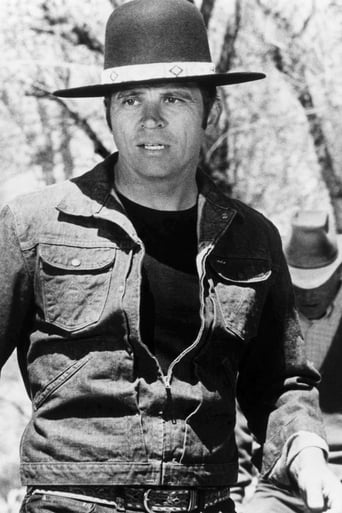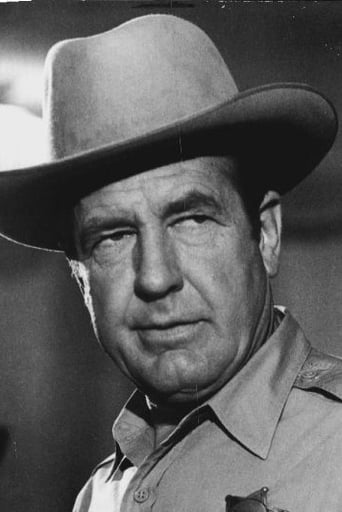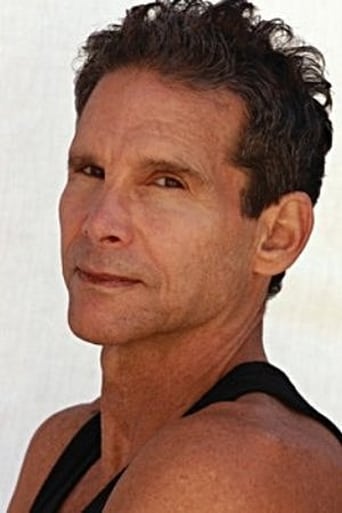gavin6942
Ex-Green Beret hapkido expert saves wild horses from being slaughtered for dog food and helps protect a desert "freedom school" for runaways.Why this movie matters: Before "Billy Jack", movies contained at most brief references to martial arts, with fights portrayed by actors who had little training. With "Billy Jack", Han Bong Soo introduced authentic hapkido techniques to Western audiences. So there's that.But the film is bogged down by a weird hippie school and politics that nobody seems to understand (what is "violent pacifism"?). Interestingly, Delores Taylor received a Golden Globe nomination as Most Promising Newcoming Actress. And yet, aside from the "Billy Jack" films, that promise was not followed through on.
Uriah43
Four years after making his initial debut in the movie "The Born Losers", the former Green Beret soldier named "Billy Jack" (Tom Loughlin) returns to help defend the people of a counterculture school on the Indian reservation from being bullied and harassed by a rich businessman named "Stuart Posner" (Bert Freed) and other like-minded individuals from a nearby town. Although the hatred coming from the townspeople toward them is quite obvious, those in the school refuse to retaliate in kind and this pushes Stuart's insane son, "Bernard" (David Roya) to take even more violent actions. What he doesn't quite realize is just how deadly Billy Jack can become when he is forced to react. Now rather than reveal any more of this movie I will just say that this film was definitely a product of its time. Unfortunately, the movie hasn't aged very well and as a result there will probably be many viewers who will consider the overall theme of the film to be rather laughable--and to a large extent I have to agree. Again, having watched this movie just recently I can honestly say that some of the scenes are indeed quite ridiculous. Even so I suppose this wasn't necessarily a bad movie overall and for the sake of nostalgia I have rated it accordingly. Average.
romanorum1
The movie's theme song "One Tin Soldier" was covered by Coven from the original 1970 tune by Original Caste. In it, the valley people covet supposed riches of the mountain kingdom. The latter wish to share, but the valley people, wanting it all, attack and slay their neighbors. But they find no riches. One tin soldier rides away, the legend of Billy Jack.Billy Jack (Tom McLaughlin) martial arts expert and ex-Green Beret, is a "half-breed" who has authority to uphold the law on an Indian reservation in Arizona or New Mexico. Billy Jack's girl is a strong- willed woman, a pacifist, Jean Roberts (Delores Taylor, his wife in real life) who runs the Freedom School. This progressive reservation school for troubled young folks welcomes all youth regardless of ethnicity; it is a rainbow. There are three main rules: (1) no drugs, (2) everyone must pull his/her own weight, and (3) a student must create something, like a painting about his/her heritage, weaving a blanket, creating a film, etc. One may surmise that the Indian reservation and school represent the mountain people of the song.In contrast to the school is the nearby town outside the reservation. The folks who live and work there are hostile to the reservation school as they cannot relate to its unorthodox teaching methods. As they consider the kids to be outcasts, they make no attempt to hide their various prejudices. In reality the deck is stacked: all of the virtues belong to the school population with the exception of one or two oddballs. By contrast, all of the negative qualities are possessed by the narrow-minded townsfolk nearly without exception. They do not like "long-haired weirdos." Chief among the town-folk are the Posners, businessman father and purposeless son. The former, Stuart Posner (Bert Freed), is plain rotten; the latter, Bernard (David Roya), is a disdainful rich kid. At the beginning Stuart Posner thinks there is nothing wrong about illegally rounding up wild mustangs on Indian land and slaughtering them for profit. Although Bernard initially seems to stand up to his father, he later shows his vile side as he degenerates into murder, rape, and even near-pedophilia. Although Sheriff Cole (Clark Howat) is decent enough, his deputy Mike (Ken Tobey) is a snake. One may surmise that the town represents the valley people of the song.As pacifist Jean tells Billy, he needs to control his violent temper. In turn, Billy feels he needs to use violence to get justice for his people. An example relates to a group of Freedom School teens who take the school bus to town for shopping. At an ice cream store they suffer an intolerable injustice that goes beyond the owner not serving them. By the way, if a store-owner wants to make money, why does he not sell to everybody? This attitude has always seemed self-defeating. Anyway Billy Jack throws the biggest bully ("Dinosaur") through a plate glass window. Pow! The store owner merely stands by and watches. After that someone tampers with Billy's jeep. Then Billy Jack is outnumbered 12 to one in fight with some townsmen. In the course of the film, tensions will escalate until the inevitable conclusion of the struggle between the townsfolk and the school (Billy Jack). Although Tom McLaughlin is heavy-handed, his screen presence is huge. Reserved and athletic, he represents the ideal Caucasian-Indian hero: tough, unshakable, and aware of his Indian roots. He is at ease whether on horseback or motorcycle. Delores Taylor, slender and with long hair, but also sad-eyed and plain-faced, is appropriate as the school administrator. Although her acting is uneven, she is a central figure of the story in many ways. For it is she who began the school and both encourages and relates to the young people. It is she who helps Billy Jack come to his senses at the end. The independent film could have used experienced editing, especially for the school skits, and the script could have been tighter. The singing and guitar-playing are sometimes difficult to take. And it is understandable that Stan Rice, the actor who plays the Indian Martin, has no other silver screen credits. The movie running time is too long, and some of the dialogue and attitudes are outlandish. For instance, at the board meeting the young girl credits the "law and order" quote to Adolf Hitler. Thus the inferred message is that anyone who supports upholding our laws extols that dictator. Despite amateurish acting, the film does display a charm of its own. White-booted Susan Foster (Cindy/"Up Yours") is very attractive. Always beautiful are southwestern USA shots. The Paiute Wovoka friendship dance is colorful, while the Shoshone Indian snake ceremony is most unusual. The Billy Jack story line does maintain interest and the theme song is well done.By the way, note the yellow-colored Dr. Pepper poster advertisement on the ice cream store door when Billy Jack enters. It illustrates the upcoming school football schedule for 1969, the year when filming began. "Billy Jack" was released in 1971 and again in 1973. A movie costing under a million dollars to create grossed many times that number. This popular cult film even resulted in two sequels; its predecessor was "Born Losers" (1967).
LCShackley
I was a high school sophomore when this movie came out. It was one of the iconic movies of the period, but I managed to miss it until 2013 when I caught it on cable TV. All I knew about its content was what I learned from the Paul Simon SNL parody "Billy Paul" which ran a few years after the film's release. I had the impression that it was a sort of violent revenge film along the lines of "Death Wish."Instead, it's a 2-hour reminder of how truly awful the hippie era was, full of pretension, naiveté, new-ageism, and horrid folk songs that make you want to pull a Belushi with the guitar player. The plot itself takes about 60 minutes to unravel; the rest is filler, featuring "music" or improvised comedy by the 60s troupe "The Committee" (including Howard Hesseman under a stage name). The clichés flow freely, and the characters are all cardboard cutouts, but at least things are livened up by a few good fight scenes featuring the "pacifist" Billy Jack. It's the kind of movie you'd expect when a husband/wife team writes a script, then give themselves the starring roles and the director's chair. With any luck, this film will cure any nostalgia you may still have for the late 60s/early 70s.







